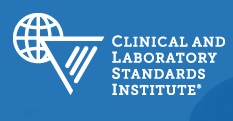Members Login

Channels
Special Offers & Promotions
CLSI Publishes a New Document on Management of Critical and Significant-Risk Results
The Clinical and Laboratory Standards Institute (CLSI) has published a new document titled Management of Critical and Significant-Risk Results (GP47-Ed1).
 This guideline provides current best practice recommendations for developing and implementing a policy and procedures for the identification, reporting, and management of critical- and significant-risk laboratory results. Emphasis is placed on management responsibilities such as development of the policy, the process, procedures, job descriptions, and monitoring systems that ensure effective reporting and compliance with regulatory requirements.
This guideline provides current best practice recommendations for developing and implementing a policy and procedures for the identification, reporting, and management of critical- and significant-risk laboratory results. Emphasis is placed on management responsibilities such as development of the policy, the process, procedures, job descriptions, and monitoring systems that ensure effective reporting and compliance with regulatory requirements.
“Compliance with regulation and accreditation standards requires a significant investment in personnel, time, and other resources. This CLSI standard provides the information needed to help health care organizations understand the requirements for reporting high-risk test results. GP47 gives organizations the ability to develop policies and procedures that promote patient safety and success during regulatory or accreditation inspections and allows for a more efficient use of their resources,” states Andrew N. Young, MD, PhD, Chairholder of the GP47 Document Development Committee and Medical Director at Quest Diagnostics in Pittsburgh, Pennsylvania, USA.
This new document refers to results as critical risk and significant risk, depending on the degree of risk to the patient. The recommendations in the standard are intended to be consistent with best practices for patient safety, and compliant with current, pertinent regulatory and accreditation requirements. GP47 includes an executive summary and appendixes with sample policies, reporting methods, escalation procedures, and monitoring tools.
This document is intended for clinical and laboratory directors, managers, and personnel who develop and implement laboratory policies and processes. The standard is also intended for health care administrators who oversee compliance with regulatory requirements, accreditation, and clinical practice standards related to patient safety. The recommendations cover every laboratory discipline and pertain to clinical laboratories of every size, scope, and complexity.
Media Partners


